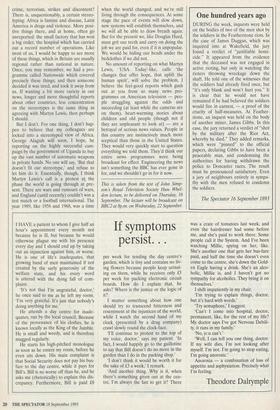One hundred years ago
DURING the week, inquests were held on the bodies of two of the men shot by the soldiers in the Featherstone riots. In the case of James Duggan, which was inquired into at Wakefield, the jury found a verdict of "justifiable homi- cide." It appeared from the evidence that the deceased was not engaged in active rioting, but only in watching the rioters throwing wreckage down the shaft. He told one of the witnesses that the soldiers had already fired once, but "it's only blank and won't hurt you." It is clear that he would not have remained if he had believed the soldiers would fire in earnest, — a proof of the cruelty of half-measures. At Feather- stone, an inquest was held on the body of another miner, James Gibbs. In this case, the jury returned a verdict of "shot by the military after the Riot Act, whereby he died." They added remarks, which were "pinned" to the official papers, declaring Gibbs to have been a peaceable man, and condemning the authorities for having withdrawn the police to Doncaster races. The result must be pronounced satisfactory. Even a jury of neighbours entirely in sympa- thy with the men refused to condemn the soldiers.
The Spectator 16 September 1893


































































 Previous page
Previous page